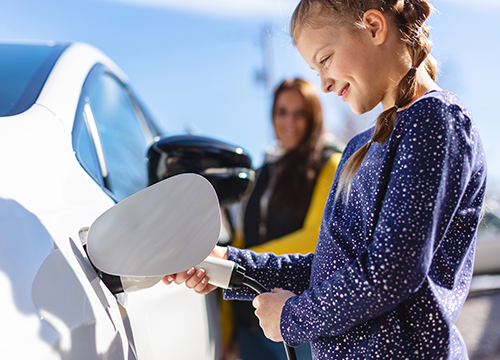House fires make heartbreaking stories, especially when it comes to the reasons why fires start – a clothes rack laden with washing, placed too close to a heater; the chimney not swept before the first fire of winter each year; the electric blanket used for many years and never checked…
Wayne Tippet, Executive Manager, Claims Performance, for one of the country's longest standing insurers, State, heads up the team that helps customers deal with the aftermath of a fire in their homes.
Although insurance will always be there to help people recoup their losses after a fire, he says it's devastating to see cases where a simple mistake leads to a fire, terrible consequences and tragedy for some families.
"My team will often speak to customers who say having a smoke alarm or fire extinguisher potentially made a big difference to the outcome of a house fire. "They'll say, 'My smoke alarm woke me up' or 'I was awake, but the smoke alarm raised the alarm'. Time and time again people say that if it hadn't been for the smoke alarm, there could have been far more serious consequences."
As well as having smoke alarms through a home, it is vital to test them regularly and to keep spare batteries on hand. Fire extinguishers can also make a huge difference to the outcome of a fire but Tippet says it is crucial for people to familiarise themselves with the instructions, so they know how to use them properly.
When things are getting out of control, the best course of action is not to try to douse the flames but to get out of the house as fast as possible. Fire and Emergency New Zealand (fireandemergency.nz) have advice on what to do in a house fire – advice every New Zealander should become familiar with.
"Escape plans are so important and something the whole family needs to know about in advance," says Tippet. "This just might save lives, because flames spread so quickly. So many times we have spoken to customers who've told us that one minute it was under control, and the next minute it was a catastrophe. You're better off to get everyone out and let the experts – the fire service – deal with it."
"While we are here to help when things go wrong, we believe every one of our customers would agree it's much better to prevent fires from happening in the first place. Often it is very simple things that may make a difference."
These include taking precautions when the weather turns cold and people begin using various ways to keep warm: "This is the key time of year, heading into the cold months, when we know we will see an increase in house fires; close to half of the fire claims in a 12-month period happen over the next few months," says Tippet.
Other fire safety tips he is keen to highlight ahead of this winter season include:
Open fires
- Open fires in homes are a common cause of fire whether it's from embers getting out or hot ashes not disposed of properly.
- Ashes can take five days to cool.
- A fireguard is a good idea to avoid embers coming out of the fire place.
Chimneys
- Chimneys need regular cleaning – it's not unusual for State to see claims where fire started because of debris, like a bird's nest. Even if a full-on blaze doesn't result, smoke can still cause damage that will need to be repaired.
- Chimneys should be swept every year before the first fire of the season.
Electric blankets
- Electric blankets are another common cause of fires, due to faulty wiring.
- They don't have a lifespan of forever so, if you've had one for a few years, take a look at the manufacturer's lifespan recommendation. You may need to replace it.
- Having electric blankets checked by an electrician is also a smart move.
Lint in dryers
- Other simple checks people can do themselves include making sure there isn't a build-up of lint in the clothes dryer. If you haven't used it much over summer (and it's going constantly in winter), it's important to remove excess lint before use as it can cause a fire. If drying clothes inside on a rack, use common sense and don't put it too close to a heating source; it may just save the home from going up in flames.
Other common issues that are not seasonal but regularly cause fires include overcharging tools that have batteries, leaving cooking unattended, and children playing with matches or lit candles.
Tippet says another key step is to check you have the right insurance: "The last thing you want to be doing after a fire is to be looking at whether what insurance you've got is adequate.
"However, the most important thing is prevention. We can help you replace some of the things you have lost but we can't help with a loss of life," he says.
"You will never know whether that step you have taken is the thing that prevents a fire – but that's much better than having a fire and saying to yourself afterwards, 'If only...'".
You might also like...
-
 December 2024Insurance Blog | State Insurance
December 2024Insurance Blog | State InsuranceSwitch to email
-
 March 2024Insurance Blog | State Insurance
March 2024Insurance Blog | State InsuranceInsuring your electric vehicle with State: Navigating car insurance for EVs and hybrids
-
 March 2024Insurance Blog | State Insurance
March 2024Insurance Blog | State InsuranceThe ins and outs of Third Party Car Insurance
